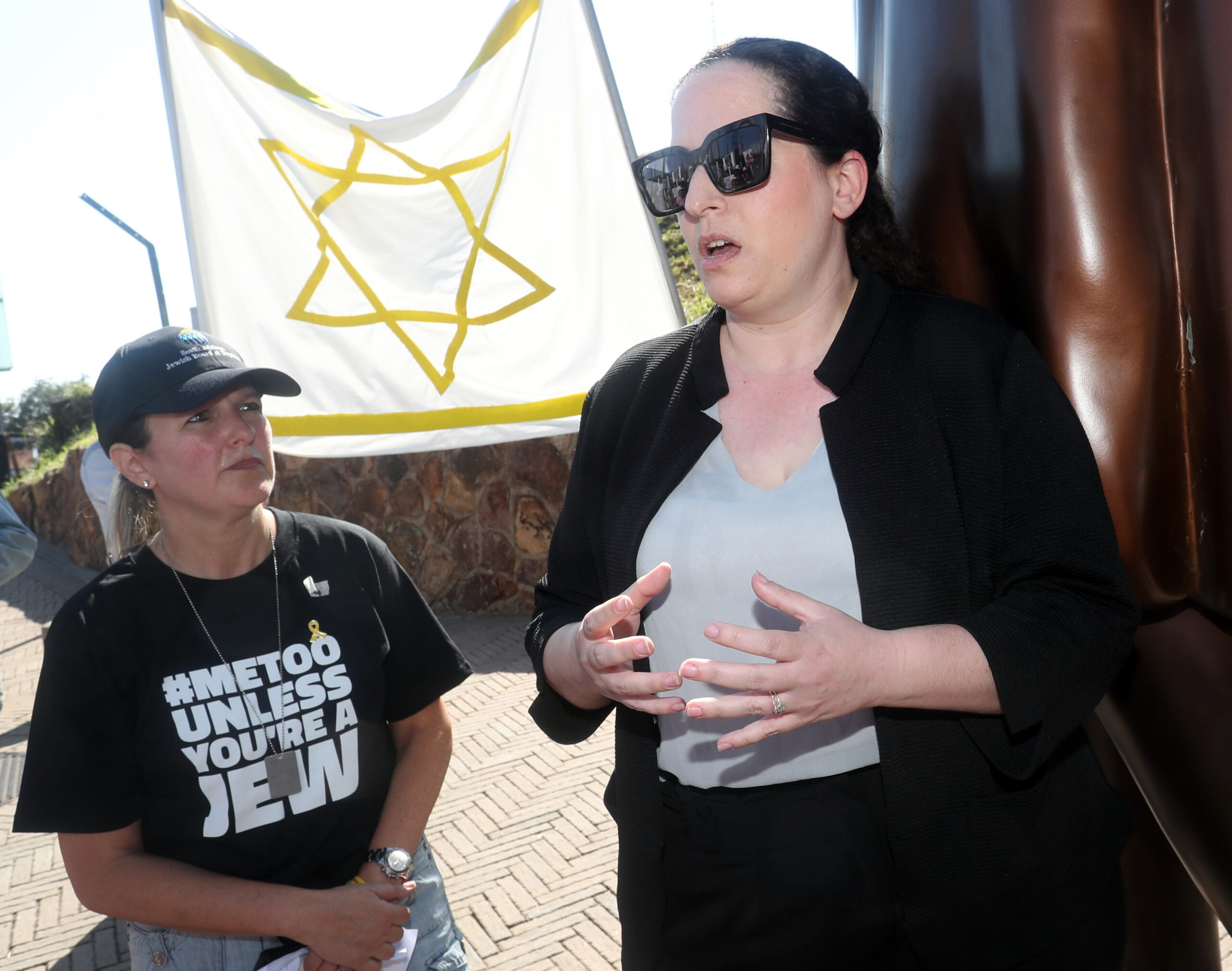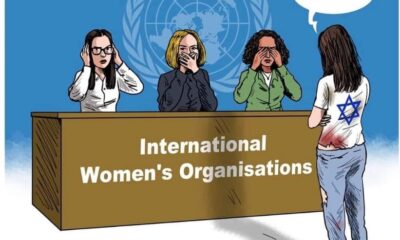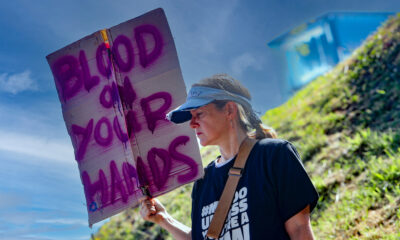
Featured Item

Barbarism of sexual violence gives activist nightmares
As Miriam Gvaram was marching towards the Women’s Prison on Constitution Hill, she couldn’t believe that she had come to South Africa to help Jewish women convince the world of the sexual violence experienced by Israelis on and since 7 October.
“Never in my life did I think this would happen to us, and that the world wouldn’t believe us,” said Gvaram, Israel’s deputy executive director of the Survivors of Sexual Violence Advocacy Group, who came to South Africa for International Women’s Day.
Gvaram, who is herself a survivor of gender-based violence (GBV), has been an activist against GBV since she was about 15 years old. Before 7 October 2023, she had dealt with people who had suffered the worst of humanity, including those who had been sexually tortured, trafficked, and severely physically abused, mostly from African countries.
She was brought to South Africa by the South African Jewish Board of Deputies to speak at the march, meet local nongovernmental organisations, and help create awareness of what happened in Israel.
The violence in Israel on 7 October was the most traumatic experience she and her country had ever had, she said, and more than five months later, she’s still having nightmares about it. This is in spite of not actually having been at the sites of the attacks.
“I was down south, near Ashdod, on my family’s moshav for Simchat Torah, and we woke at 06:30 to hear the siren and wondered what was going on. We were in the safe room, my two nieces of six years old came in, and then my sister with her two-year-old,” Gvaram told the SA Jewish Report this week. But they got more worried when the sirens kept going off.
“We knew something was very wrong when my dad, who had gone to synagogue early in the morning, came home, still with his tallit on his shoulders, because the service had been stopped by an emergency unit. They were sent home because there was fear the terrorists could come to our moshav.”
Her family couldn’t continue to observe Shabbat, and they switched on their phones and the television to try and work out what was going on. “And then we saw the footage, and felt sick to our stomachs,” she said. Her brother in Jerusalem, who also normally keeps Shabbat, called to hear her voice and find out if they were okay because they were down south.
“When we started hearing reports that Hamas was taking hostages, I told my parents they couldn’t possibly take children and elderly – surely not – as they were no threat. I was wrong, they didn’t care.
“I also didn’t believe there would be sexual violence because that isn’t something we have had much of from terrorists before. How wrong I was! We have never had such gruesome, barbaric sexual violence before! It took me a long time to understand just how horrific it was, and the massive scale of it. And I understand and work with sexual violence.”
As far as she knows, most victims were murdered, and there are only four survivors of the sexual assaults, not all of them women. “They are the only ones who have come forward to date, but one of the hardest things about GBV is that it takes people years to talk about it. In this case, it was so public, which was clearly Hamas’s intent – to humiliate us further.
“But there were many witnesses who hid in trees or wherever possible, and they are also victims because they could do nothing. If they tried, they would also have been raped.”
Gvaram said those who found the bodies are also witnesses, and were disturbed by what they found. However, she said, the true number of victims of sexual violence will never be known because when processing the bodies, the authorities were trying to identify people, to figure out who was taken hostage or murdered, and collecting proof of the violence wasn’t a priority.
Considering what has happened and what the released hostages have said, people being held in Gaza are likely still to be suffering abuse, Gvaram said.
“From all my work in GBV, with people who have been trafficked, refugees, and ordinary civilians, I know that with the right therapy, people can survive this,” she said.
“However, Israel has a crisis in the mental-health arena. There weren’t enough therapists before 7 October, and now we’re flooded by people who need help. Our government needs to understand that there’s a major mental-health crisis.”
“I wasn’t harmed in this, and I don’t know anyone personally who was, but even my life changed on 7 October. My sense of security changed. I never believed this could happen, and for the first few months after the massacre, I told my husband that I loved him every day when I left the house as if I might not see him again.”
In her work, she’s having to consult experts on how to collect evidence, and consulted hospitals about how to deal with the trauma of the hostages and people who witnessed the attacks, and what to ask about the sexual violence.
“There’s so much we have never dealt with as a country before, and our organisation is working on policy change with the ministry of health and other authorities to find solutions.”
Gvaram believes the United Nations (UN) report released last week was a good thing for Israel. “It’s the first time a UN official is admitting it actually happened. There’s been such a deafening silence. There was a sense that you couldn’t believe Israelis. And now Pamela Patten has produced a professional report in which there’s no doubt as to what happened. This is powerful.”
She called on the South African Jewish population to raise their voices about what happened, and make sure the hostages aren’t forgotten. “We have to bring them home!”










